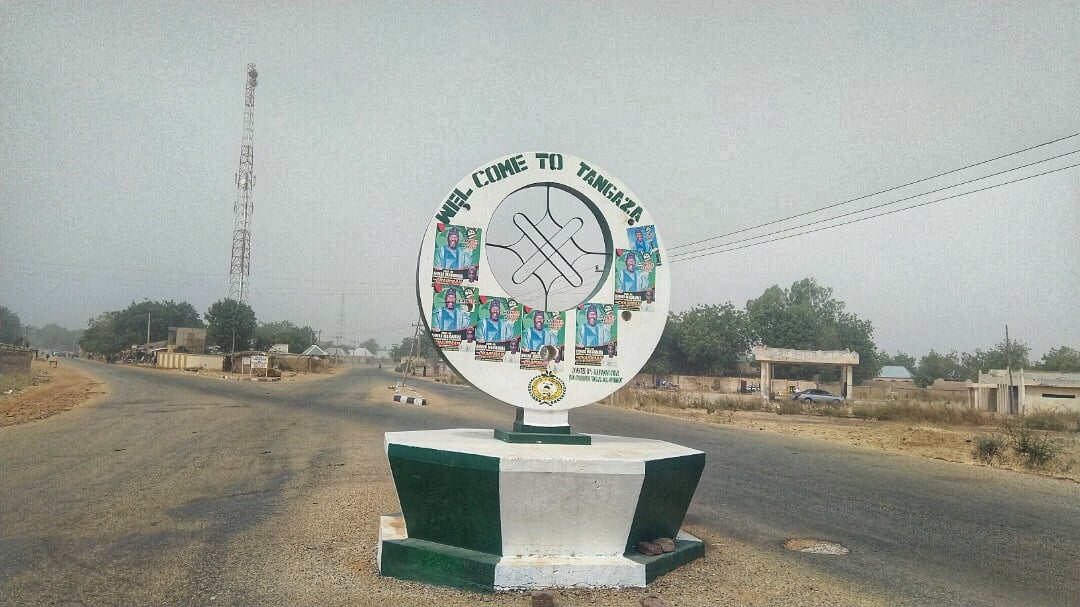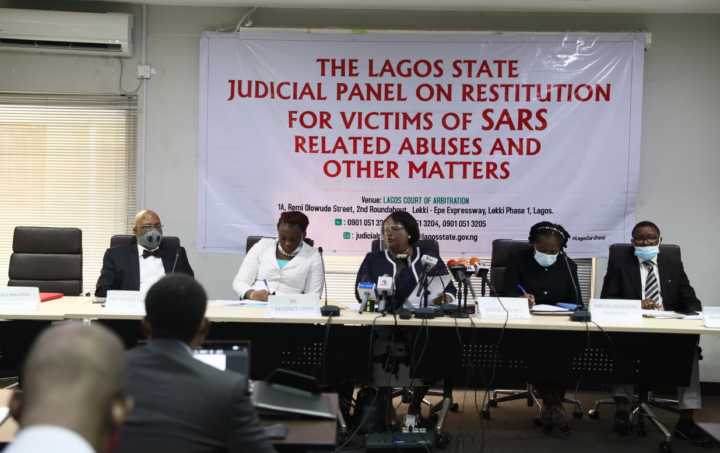Tangaza, a border community in Sokoto,
BY AWWAL GATA
About two months ago, policymakers all over the world converged on Glasgow, Scotland, for the well-publicized United Nations Climate Change Conference, more memorably known as COP26. It was the 26th of such gatherings and an opportunity for the world to underline the threats of climate change in a fast-changing world and reassess their commitments to finding a solution.
Nigeria has been a frontline advocate of these efforts to protect the environment, and this call has been the core of Sokoto state’s awareness of the looming ecological disaster.
About a year earlier, during a visit to Nigeria’s Minister of Environment, Dr. Mohammad Mahmood Abubakar, Governor Aminu Waziri Tambuwal’s success in “mitigating the damaging effects of climate change” was praised, and so was his collaboration with the federal government and non-governmental partners in driving Nigeria’s climate change agenda. The visit followed the flag-off of the “Re-Greening Sokoto State with Economic Trees” campaign, which was a timely response to the challenge of desertification across the region and a massive catalyst in the global clamouring against its devastating impact.
Advertisement
Like all the states in the furthermost parts of the North and the neighbouring countries, Sokoto state has been combating desertification, drought, land degradation, along with the consequent environmental health hazards, waste and pollution. The State Ministry of Environment, under the leadership of Hon. Sagir Bafarawa, has been at the forefront of the state’s policy decisions to tackle the problems through land reclamation, afforestation, reforestation, forest protection as well as flood and erosion control programmes.
In these bids to drive the tree planting campaigns, which involved both economic and non-economic trees, Governor Tambuwal’s administration increased the distribution of assorted tree seedlings from one million as achieved in 2020 to two million in 2021. This aim, aside from making the state green, is to ensure wider coverage and meet the demands of the targeted and participating communities, individuals and other stakeholders in the exercises to forestall and redeem the devastations of climate change. The programmes cut across all the 23 local government areas in Sokoto state.
The second phase of the state’s preventive measures is the institutional strengthening of the bodies and structures that contribute to, or ease, the efforts to make the state green. In doing this, Sokoto State Government has restored some principal Green House Gas Emission Sinks through enrichment of plantations. For instance, a one-hectare orchard and three-kilometre plantation have been established at the Sultan Abubakar III Jummu’at Mosque, Sokoto. The administration has also established orchards and gardens in twenty selected secondary schools across the state.
Advertisement
Among the various projects undertaken by the Tambuwal administration to protect the environment are: establishing a twenty-kilometre roadside plantation at Airport Road in the Sokoto metropolis; growing and distributing one million assorted tree seedlings, with some of the trees planted at five newly established Housing Estates located at Mana, Kalambaina, Bado, Bafarawa and Gidan Man-Ada Housing Estates; embarking on sensitization campaigns on the needs for trees and general environmental protection and ways to achieve them; and
collaborating with private and international organizations on the development and provision of alternative sources of energy.
In driving these partnerships, Sokoto state has also an exemplary part of the Great Green Wall project, officially known as the Great Green Wall of the Sahara and the Sahel—an initiative of the African Union which was primarily developed to solve the problems of desertification in the Sahel region and expansion of the Sahara Desert in the region. The project revolves around planting a wall of trees stretching across the entire Sahel, and Governor Tambuwal has since set a pace in achieving the declared aim by establishing shelterbelts by the GGW structures in some of the LGAs across the state. Additionally, the State Government has also provided accommodation and two offices to the Great Green Wall project at Illela and in Sokoto City.
Tambuwal’s institutional and structural intervention instigated the expansion of the school orchard programme to cover 50 more selected secondary schools and resuscitated the young foresters’ clubs to oversee their fruition. Having also rehabilitated dilapidated forest nurseries in the state and having tree seedlings, especially mango, dates palm, shea butter, guava and gum arabic shared and agro-forestry, the government took care of the water needs in actualizing the projects through installations of borehole wells in the project areas.
Another key legacy of the government, eventually, would be the education and mobilization of residents of the state, especially, young students, to understand the consequences of climate crisis in the region and the role of the interventions being spearheaded by the government. Either my organizing training and workshops on briquette making and usage to encourage the use of alternative sources of energy or investing in various forestry infrastructure and programmes, Tambuwal is preparing Sokoto state for the future that warranted the negotiations and deliberations in Glasgow.
Advertisement
Tasked with these responsibilities are critical parastatals like Sokoto State Environmental Protection Agency (SEPA), State Afforestation Programme (SAP) and Sokoto State Erosion and Watershed Management Agency (SEWMA) under Hon. Bafarawa-led Ministry of Environment. SEPA, for instance, has been vigorously cleaning and evacuating refuse in the state with hundreds of sanitation agents on the payroll of the state dedicated to this vision.
However, for Nigeria to meet up with the Glasgow Climate Pact, critical stakeholders, especially leaders in regions affected by ecological crises must play huge roles to make a difference. But the wisdom isn’t just in the application of the scientific solutions to these threats to the environment, but realizing that the human conflicts and the consequent food insecurity that have wrecked the regions are driven by years of refusal of political stakeholders to prioritize solutions to well-documented environmental degradations.
Awaal Gata, a media practitioner and public affairs analyst, and writes from Abuja.
Advertisement
Views expressed by contributors are strictly personal and not of TheCable.
Add a comment






